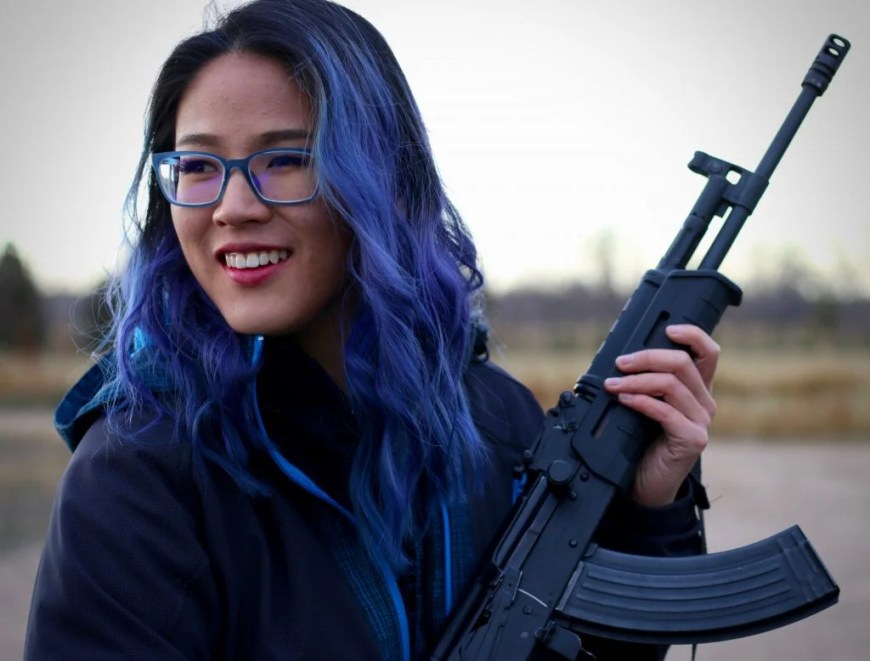This past Saturday I traveled to Salida, CO attend a town hall hosted by State Senator Kerry Donovan. Donovan is a rural Democrat who has vote with Republicans on gun issues in the past. Her district is largely pro-gun, and she knows it. She also knows HB19-1177 “Red Flag” Emergency Risk Protection Orders ERPO is DANGEROUS POLICY for her gun owning constituents. She should do the right thing and vote NO on this bill. It is her duty as a representative of the communities she represents, including the sheriffs who oppose this legislation on safety grounds.
Last Friday during the “Red Flag” ERPO Senate Floor debate, Donovan stated that she had spoken to Chaffee County Sheriff John Spezze, as well as the county commissioners, and that they DID NOT oppose HB19-1177 and would NOT be adopting Second Amendment Sanctuary status. But at her town hall the truth came out when the sheriff himself stated they had never had a conversation, that he opposed the bill, and that he would be asking his commissioners to seek Second Amendment Sanctuary status. This was backed up by one of the county commissioners. Then she loses it on her constituents..
Colorado HB19-1177 “Red Flag” Emergency Risk Protection Orders ERPO will be going to a final vote any day! Contact these lawmakers by phone and email NOW!
Kerry Donovan
[email protected].
303-866-4871
Leroy Garcia
[email protected].
303-866-4878
Rachel Zenzinger
[email protected]
303-866-4840
[email protected].
[email protected],
jessie.danielson.senate@state.
[email protected].
stephen.fenberg.senate@state.
[email protected].
[email protected],
[email protected].
[email protected],
julie.gonzales.senate@state.
[email protected],
dominick.moreno.senate@state.
brittany.pettersen.senate@
robert.rodriguez.senate@state.
[email protected]
[email protected],
angela.williams.senate@state.
[email protected].
[email protected],
[email protected],
[email protected],
[email protected].
[email protected]
[email protected],
[email protected].
[email protected].
[email protected].
[email protected].
[email protected],
[email protected],
[email protected],
[email protected],
[email protected],
[email protected],
[email protected].
This year’s bill is being called an “Emergency Risk Protection Order” or ERPO in an attempt to lose the negative “Red Flag” reputation. It is also being pushed more than ever as being about suicide prevention. Don’t let any of it fool you. The devil is in the details; it’s in the 30 pages of bill language. You can read a complete break down of these 30 pages here, as well as watch a video going through the language line by line.
Here’s what you’ll hear the media say this bill does:
“A family member or law enforcement officer would petition a court to request the ability to immediately seize a person’s guns. If a judge signs the order, the weapons can be taken away and the court must hold a hearing within 14 days to determine whether to extend the seizure and bar the person from purchasing more firearms.”
Here’s what they wont tell you:
• Almost anyone can request an ERPO without even showing their face or providing their address. The definition of “family or household member” is so broad it includes ex-lovers who you have never even lived with! Or someone *claiming* you once had an affair. And even old roommates.
• The initial report and hearing can be done over the phone, all while the accused is completely oblivious proceedings are taking place to have his or her firearms confiscated. There is no due process at this first hearing – which is the hearing where permission is given to confiscate gun! Even Colorado Attorney General Weiser admits to the lack of due process. Watch his testimony here.
• The first time the accused learns someone has reported them will be when local law enforcement shows up at their door with an order AND a search warrant prepared to raid your home – while the accused never even committed a crime. This search warrant is a BRAND NEW type of warrant that is created in the bill – a gun owner specific civil search warrant. Read all about that here.
• 14 days later is the first time the accused will have a chance to defend themselves against this non-crime. The burden of proof will fall on the accused, not on the petitioner who can actually provide affidavits rather than attend court!
• The guns will be confiscated for 364 days, during which time the accused only has one opportunity to ask the courts to lift the order.
• There is zero accountability for false accusers. In fact, the filing fee is $0! For comparison, requesting a Temporary Restraining Order in Colorado is $97. Attorney General Weiser also admitted false claims will be par for the course. Listen to his statements here.
• This bill is being touted as a “suicide prevention” bill, when in fact, the fear of having your firearms confiscated will make people terrified to ask for help when they need it, and will undoubtedly escalate situations rather than deescalate them..
• It is so rife for abuse, it can easily be used by someone’s stalker or abuser to have their victim disarmed – legally.
• The ERPO will go on a person’s permanent record EVEN if it is dismissed, meaning it will show up on background checks, etc.
Read a complete write up of the bill here: www.rallyforourrights.













